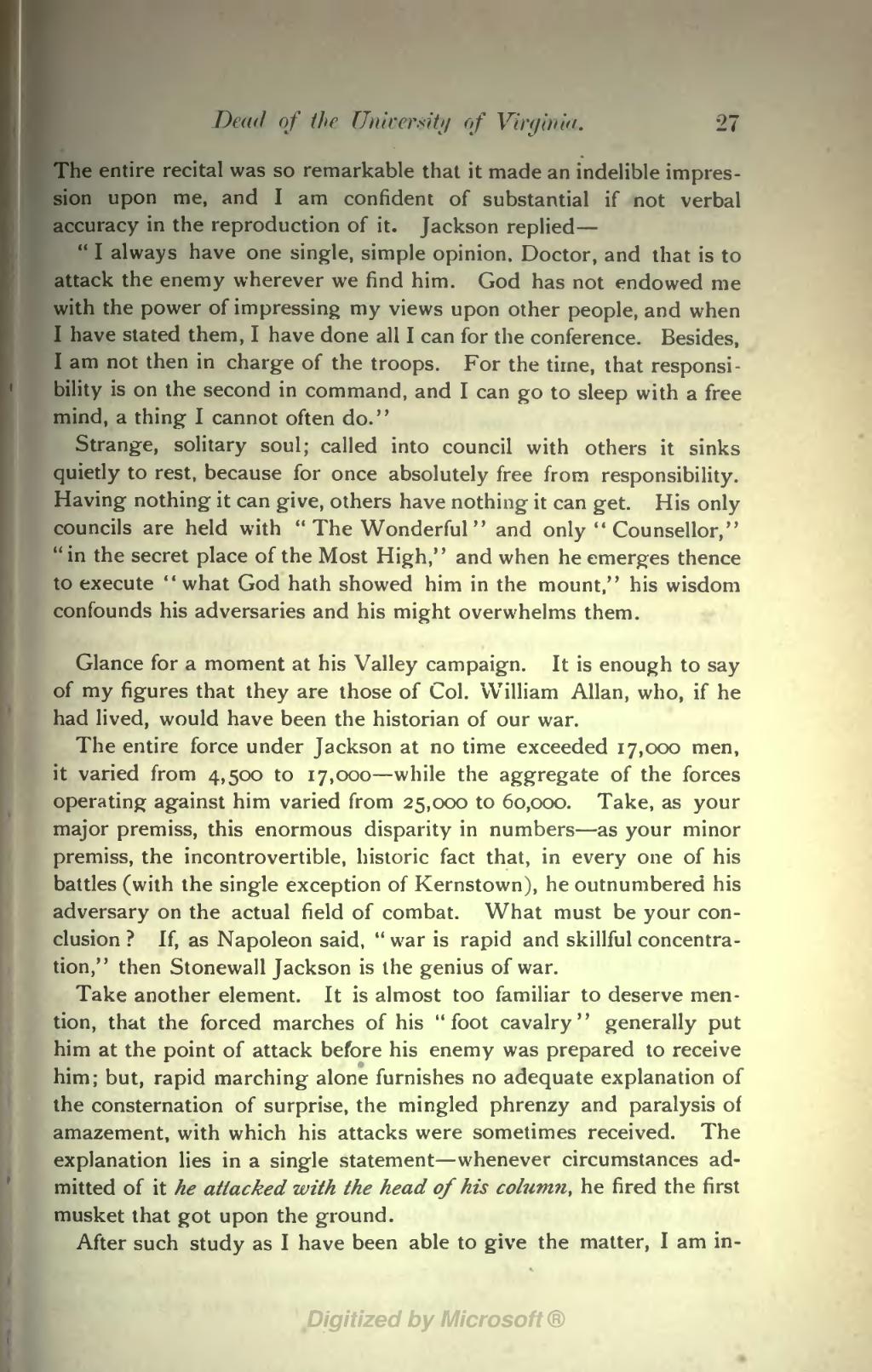I)t'ilil f fin' r////V/W/// nf Vii'il'in'ul. '27
The entire recital was so remarkable that it made an indelible impres- sion upon me, and I am confident of substantial if not verbal accuracy in the reproduction of it. Jackson replied
" I always have one single, simple opinion. Doctor, and that is to attack the enemy wherever we find him. God has not endowed me with the power of impressing my views upon other people, and when I have stated them, I have done all I can for the conference. Besides, I am not then in charge of the troops. For the time, that responsi- bility is on the second in command, and I can go to sleep with a free mind, a thing I cannot often do."
Strange, solitary soul; called into council with others it sinks quietly to rest, because for once absolutely free from responsibility. Having nothing it can give, others have nothing it can get. His only councils are held with " The Wonderful" and only " Counsellor," "in the secret place of the Most High," and when he emerges thence to execute " what God hath showed him in the mount," his wisdom confounds his adversaries and his might overwhelms them.
Glance for a moment at his Valley campaign. It is enough to say of my figures that they are those of Col. William Allan, who, if he had lived, would have been the historian of our war.
The entire force under Jackson at no time exceeded 17,000 men, it varied from 4,500 to 17,000 while the aggregate of the forces operating against him varied from 25,000 to 60,000. Take, as your major premiss, this enormous disparity in numbers as your minor premiss, the incontrovertible, historic fact that, in every one of his battles (with the single exception of Kernstown), he outnumbered his adversary on the actual field of combat. What must be your con- clusion ? If, as Napoleon said, " war is rapid and skillful concentra- tion," then Stonewall Jackson is the genius of war.
Take another element. It is almost too familiar to deserve men- tion, that the forced marches of his "foot cavalry" generally put him at the point of attack before his enemy was prepared to receive him; but, rapid marching alone furnishes no adequate explanation of the consternation of surprise, the mingled phrenzy and paralysis of amazement, with which his attacks were sometimes received. The explanation lies in a single statement whenever circumstances ad- mitted of it he attacked with the head of his column, he fired the first musket that got upon the ground.
After such study as I have been able to give the matter, I am in-
